The identical forces that opened Wall Avenue to everybody are actually reshaping DeFi, one thing Robinhood may by no means provide.
When Robinhood launched commission-free buying and selling in 2013, monetary establishments dismissed it as a toy for millennials who could not afford actual brokers. Quick ahead to 2021, and people “beginner” merchants are transferring the market, forcing hedge funds to shut positions, and essentially altering the best way Wall Avenue thinks about retail participation.
Decentralized exchanges are following a surprisingly related trajectory. Related unfavorable criticisms comparable to “It is simply hypothesis,” “Actual traders will not make the most of this,” and “The expertise is not prepared but” replicate the skepticism that greeted Robinhood’s early progress.
However this comparability solely scratches the floor. DEXs do extra than simply democratize entry to current markets. They’re constructing market infrastructure that conventional finance can’t structurally construct.
Quantity signifies infrastructure, not simply hypothesis
Critics wish to level out that a lot of the amount in DEXs comes from arbitrage bots and automatic buying and selling methods, fairly than particular person retail traders choosing shares. They are not incorrect, however they’re utterly lacking the purpose.
Excessive-frequency buying and selling and algorithmic methods additionally dominated early adoption on the NASDAQ. Skilled merchants will all the time prepared the ground in infrastructure deployment as a result of they’ve the strongest incentive to search out and exploit effectivity gaps. As soon as the infrastructure proves dependable and user-friendly, retail will comply with.
ChefWEN, a outstanding determine in DeFi evaluation, candidly said: “Whereas the buying and selling quantity is actual, it’s pushed by totally different consumer conduct than what is usually seen in conventional finance. We’re seeing yield farming and hypothesis dominating the adoption curve, however it’s the foundational layer. What comes subsequent is the broad participation that Robinhood has unleashed.”
The numbers help this infrastructure-building story. At the moment the third largest DEX on the earth, Momentum processes $1.1 billion in each day buying and selling quantity with 2.1 million customers and $500 million in complete liquidity. These metrics signify a purposeful market infrastructure that permits programmable property, cross-chain swaps, and institutional liquidity provision at a scale that was not doable simply two years in the past.
Mathematical belief and regulatory charity
Robinhood’s worth proposition was based mostly on regulatory safety and company goodwill. Fee-free buying and selling labored as a result of Robinhood was in a position to monetize order stream via established market makers working underneath the supervision of FINRA. Customers trusted the system as a result of the SEC and FDIC supplied a backstop.
DEXs function on a essentially totally different belief mannequin, certainly one of mathematical permanence fairly than regulatory benevolence. Sensible contracts execute as programmed, with out the potential of selective enforcement or company coverage modifications that may maintain customers again.
The GameStop buying and selling suspension in January 2021 made this distinction clear. When Robinhood restricted the acquisition of unstable shares to “shield” its customers, it demonstrated that regulatory safety works each methods. Authorities that assure deposits can even revoke market entry if it serves broader institutional pursuits.
DEX can’t implement buying and selling suspension. Person funds can’t be frozen based mostly on coverage choices. Guidelines can’t be selectively enforced based mostly on political stress. For institutional traders more and more involved about regulatory overreach and political danger, this mathematical reliability represents an actual aggressive benefit.
The widespread grievance that “DEXs don’t have any customer support” can be misplaced. Customer support consists of the discretion to override regular operations. For giant capital allocators, the dearth of such discretion is a function, not a bug.
Administration complexity as short-term friction
The largest barrier to mainstream DEX adoption stays custody complexity. Managing non-public keys, understanding gasoline charges, and navigating a multi-chain surroundings requires superior expertise that almost all traders lack.
Nevertheless, custody points signify rising pains fairly than everlasting limitations. {Hardware} pockets integration is quickly enhancing. Multi-signature storage options have gotten an institutional commonplace. A simplified consumer interface abstracts away a lot of the underlying complexity.
Extra importantly, institutional storage infrastructure is nearing manufacturing readiness. Main custodians are constructing DEX connectivity layers that present conventional account administration whereas retaining the elemental advantages of decentralized infrastructure. The timeline for conventional finance and custody parity seems to be round 18 months, not 18 years.
Structural benefits that can’t be imitated by conventional finance
Past accessibility comparisons, DEXs provide options which can be essentially unmatched by centralized exchanges.
World 24/7 entry is a transparent benefit. Robinhood nonetheless operates inside market hours and geographic restrictions. DEXs by no means shut and could be accessed from anyplace with an web connection.
Composability gives deeper structural advantages. DEX customers can mix a number of protocols inside a single transaction to change tokens, present liquidity, and declare atomic rewards. Conventional finance can’t present this stage of programmable interplay as a result of totally different establishments can’t work collectively at this stage of integration.
Programmable possession permits totally new asset classes. DEX tokens can mechanically execute advanced logic, distribute rewards based mostly on utilization patterns, and implement governance mechanisms that modify parameters based mostly on market circumstances. Conventional securities legal guidelines can’t accommodate these hybrid fashions.
Maybe most significantly, DEXs present regulatory arbitrage that turns into a everlasting infrastructure. Customers from nations with restricted capital controls or monetary entry can take part in world markets with out permission from native authorities. This accessible market is structurally unreachable via conventional finance and represents tons of of tens of millions of potential customers.
Momentum’s progress demonstrates these advantages in apply. The platform has expanded quickly, not regardless of regulatory uncertainty, however due to the structural benefits {that a} decentralized infrastructure offers to customers looking for an alternative choice to conventional monetary gatekeepers.
Infrastructure integration
Actual challenges nonetheless stay. Fragmentation of liquidity throughout totally different chains creates an inefficient market. Cross-chain infrastructure introduces new safety dangers. Organizational compliance necessities battle with nameless transaction patterns.
Nevertheless, these issues are being solved systematically. Multi-chain liquidity aggregators cut back fragmentation. Cross-chain bridge expertise is quickly maturing with improved safety fashions. A regulated connectivity layer is rising that gives a compliance-first interface to the underlying distributed infrastructure.
The organizational infrastructure stack required for mainstream DEX deployments is sort of full. What appeared unimaginable three years in the past now appears inevitable inside the subsequent two years.
Past the Robin Hood second
DEXs are experiencing one thing larger than a “Robin Hood second.” Robinhood supplied higher entry to current markets with much less friction. DEXs are constructing infrastructure for a essentially new sort of market with capabilities that can’t be replicated in conventional finance.
Robinhood’s improvements have been primarily about value discount and optimizing consumer expertise. DEX innovation is about architectural transformation that permits new types of programmable possession, cross-border monetary entry, and composable monetary companies.
Conventional finance will finally appear like coaching wheels. This can be a transitional expertise wanted for customers to know digital asset administration earlier than a totally decentralized infrastructure is sufficiently user-friendly.
Robinhood had a second in 2020 when retail buying and selling grew to become mainstream in the course of the pandemic lockdown. DEXs are having a second proper now, as institutional infrastructure nears readiness and regulatory frameworks start to accommodate decentralized alternate options.
The query isn’t whether or not DEX can be adopted by the mainstream. The query is how shortly conventional monetary establishments can adapt to competitors from infrastructure past their management.










